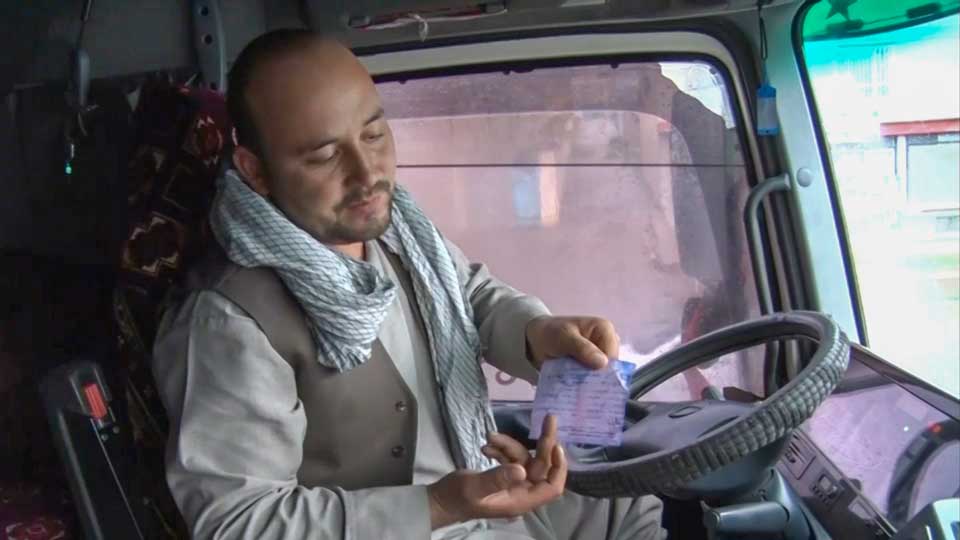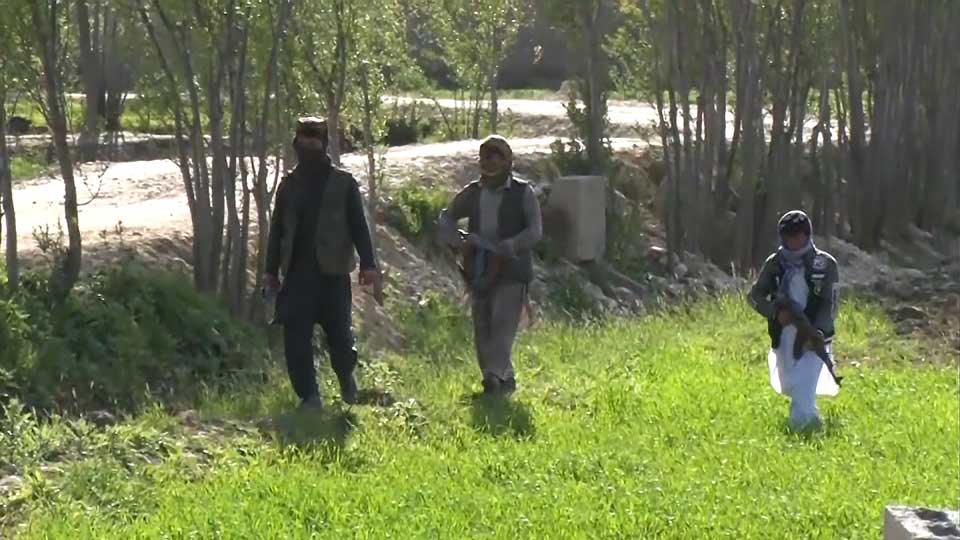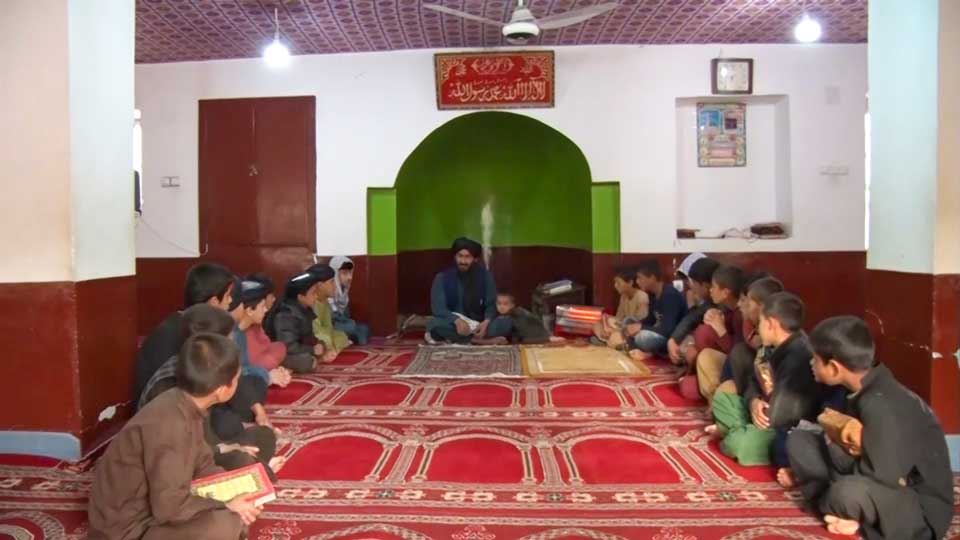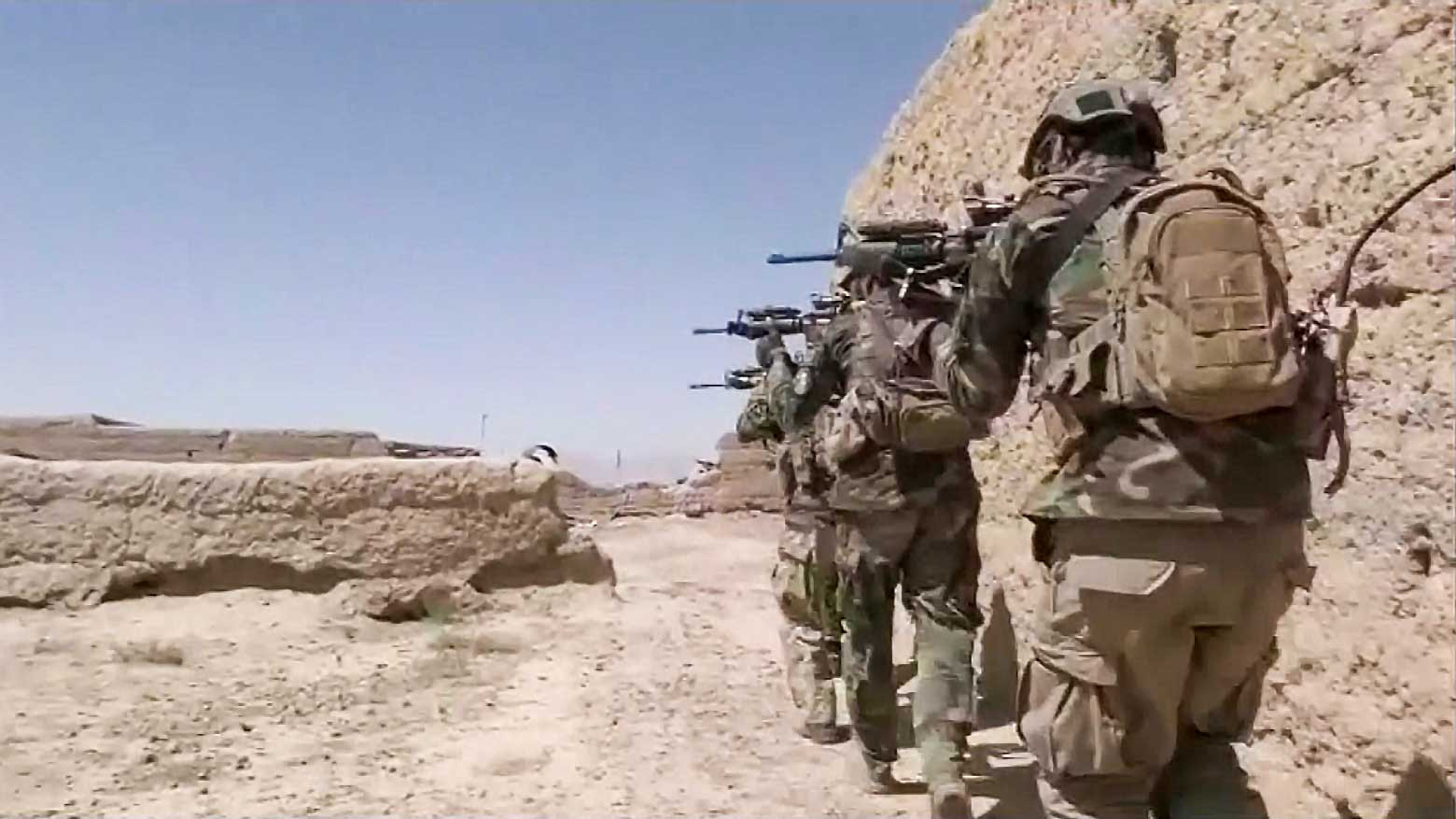As the US troops scale back their presence, the Taliban are taking advantage. Local media say the group and other anti-government forces now control more than half of the country.
The northern province of Baghlan is one of the regions where the Taliban are consolidating. One truck driver we spoke with tells of unofficial toll gates set up on highways.
"All drivers must pay the Taliban and if we don't pay, they will set our trucks on fire and detain us," he says.

In the countryside, Taliban fighters armed with automatic rifles demand money from farmers. People say they sometimes have to pay up to half their monthly income to the Taliban as taxes. That money funds the purchase of weapons.
To earn a living now, some farmers have turned to growing poppies for opium and heroin.
"I used to grow wheat, but I couldn't make enough money to pay the Taliban, so I switched to poppies," says one. "They're easy to grow, and I can make more money."

Taliban recruiting fighters
As the US moves to pull all its troops out of Afghanistan, the Taliban are recruiting more fighters. Islamic religious schools, or madrassas, have become bases for finding future militants. Clerics with links to the Taliban teach them strict Islamic doctrine.
"Afghanistan will be prosperous if everyone adheres to the Quran," a pro-Taliban cleric says. "If you don't follow it, the country will be impoverished and fall under foreign rule."
If fundamentalist ideas don't persuade people, the wages might. The coronavirus pandemic is triggering a surge in unemployment, and the Taliban promise generous payment.
One 21-year-old man who was recruited in March is being paid to attack government checkpoints and buy weapons. He earns about $800 a month, which he says is over three times what he used to make.
"The Taliban pay us good money and give us support in our daily lives," he says.

A Taliban commander responsible for training young recruits told us he has sent more than 500 of them into battle. The commander said he doesn't believe the US troops will fully withdraw and spoke of his determination to continue waging war against them.
"More and more devoted young Muslims will join and will become a huge power supporting the Taliban," he says. "Together with many young fighters, we'll continue the jihad."
Experts in the US believe that too, and have warned that it poses an international threat. The Afghan Study Group, a bipartisan body commissioned by the US Congress, released a report in February that said a rushed withdrawal of troops could lead to "a reconstitution of the terrorist threat to the US homeland within eighteen months to three years."
"The popular choice may be to withdraw more or less on schedule," says former US special envoy for Afghanistan James Dobbins. "But that could be followed by a collapse in Afghanistan, which would be a major blow for the administration."
Whether that assessment is realistic should become clearer once the troops withdraw, but in the near-term it is the people of Afghanistan who face the biggest risks.

